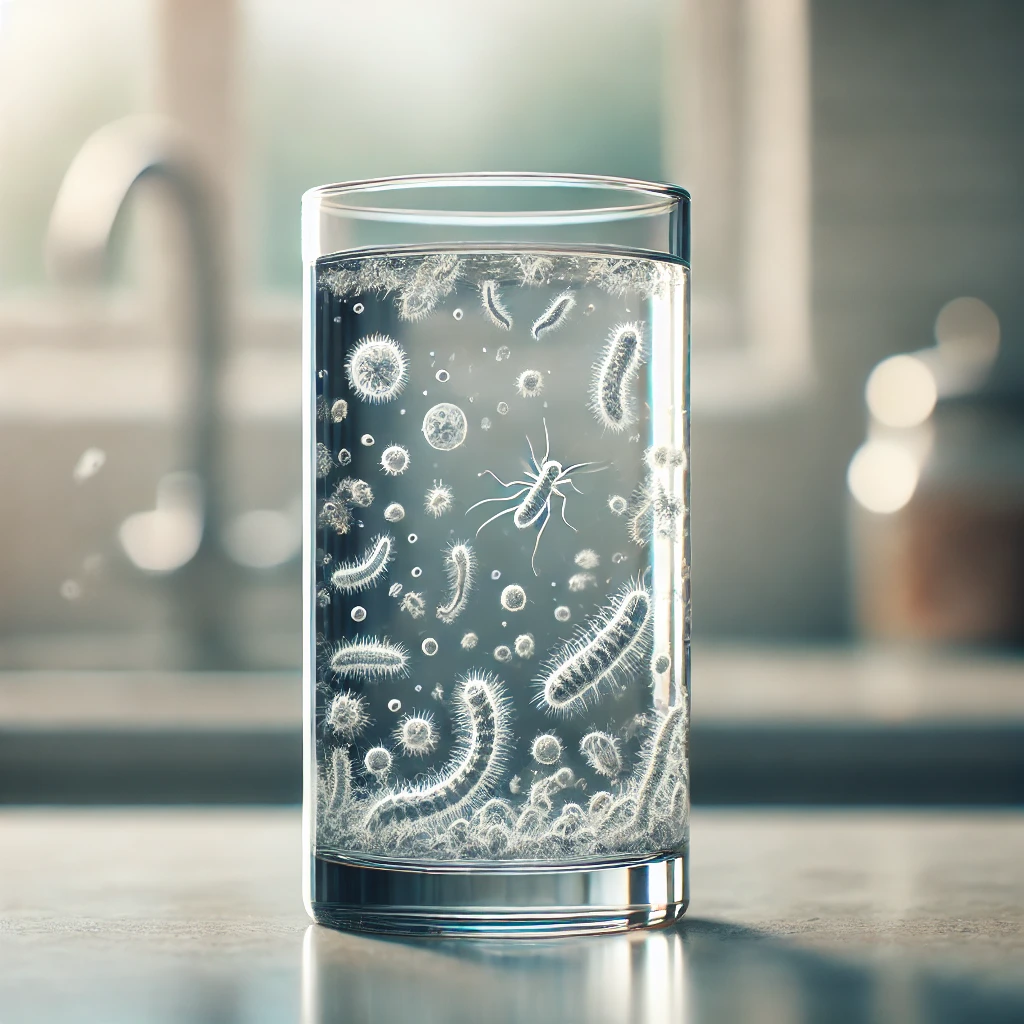
Health and Wellness
Baltimore Drinking Water Parasites: What You Need to Know to Stay Safe


DINKAR
10/27/2024
Introduction
Access to clean drinking water is a fundamental necessity for health and well-being. However, recent reports on water quality in various parts of the U.S., including Baltimore, have raised concerns over parasites in public water sources. Parasites like Cryptosporidium and Giardia can pose serious health risks if present in drinking water, leading to illnesses such as diarrhea, nausea, and stomach cramps. In this article, we’ll explore what’s causing these issues, the symptoms of parasitic infection, who’s most at risk, and steps Baltimore residents can take to ensure their water is safe to drink.
1. What’s Happening with Baltimore’s Drinking Water?
In recent years, cities across the U.S. have faced challenges with maintaining clean water, and Baltimore is no exception. While the local water treatment facilities work diligently to purify the water supply, there are still potential risks. Heavy rainfall, aging infrastructure, and natural waterways all contribute to the risk of contaminants, including harmful parasites, entering the water supply.
Specifically, parasites such as Cryptosporidium and Giardia are microscopic organisms that can be difficult to filter out entirely, especially when water treatment systems are under strain. These parasites are naturally present in the environment and can make their way into water sources, leading to possible outbreaks if not adequately controlled.
2. What Are Waterborne Parasites?
Waterborne parasites are microorganisms that can live in water and, when ingested, may cause illness in humans. The most common types found in drinking water include:
- Cryptosporidium: Known for its resistance to chlorine, Cryptosporidium can survive in treated water. Once ingested, it can cause severe gastrointestinal issues, particularly in children and those with weakened immune systems.
- Giardia: Another common parasite, Giardia causes an infection known as giardiasis, which is marked by abdominal cramps, bloating, and diarrhea. This parasite is often introduced to water through animal waste or sewage contamination.
These parasites are particularly resilient and difficult to eliminate once they have entered the water supply, requiring thorough filtration methods to remove them entirely.
3. Symptoms of Parasitic Infection from Drinking Water
While the body may sometimes clear minor exposures without issue, larger exposures can lead to symptoms that require medical attention. Some common symptoms of infection by waterborne parasites include:
- Diarrhea: Persistent and watery diarrhea is a common symptom, especially with Cryptosporidium and Giardia infections.
- Nausea and Vomiting: These symptoms can vary in intensity and may result from toxins released by the parasites.
- Stomach Cramps and Bloating: Stomach discomfort is a hallmark of waterborne parasitic infections.
- Fever and Fatigue: While less common, fever and fatigue can indicate a severe infection, especially in vulnerable individuals.
Symptoms may appear a few days to a week after exposure and can last up to two weeks or more, depending on the severity of the infection and the individual’s immune system.
4. Who is Most at Risk?
While waterborne parasites can affect anyone, some groups are particularly vulnerable, including:
- Young Children: Their developing immune systems may struggle to fight off infections.
- Elderly Individuals: Older adults may also have weaker immune systems and are more susceptible to dehydration caused by prolonged diarrhea.
- People with Compromised Immune Systems: Individuals with conditions like HIV/AIDS, cancer, or those undergoing treatments that suppress immunity, are at greater risk for severe complications.
- Pregnant Women: Pregnant women may be more susceptible to infections, which can also potentially harm the fetus.
For those in these higher-risk categories, even minor infections can quickly escalate into more serious health issues, underscoring the importance of ensuring clean drinking water.
5. Steps to Ensure Safe Drinking Water
Despite the potential presence of parasites, there are effective ways to protect yourself and ensure safe drinking water. Here are some strategies:
- Use a Water Filter: Choose filters certified to remove Cryptosporidium and Giardia. Many high-quality home filtration systems can remove these parasites, but ensure the filter has been tested and certified for this purpose.
- Boil Water: Boiling water for at least one minute (or three minutes at higher altitudes) can kill most harmful organisms, including parasites. Boiling is a simple, effective method for ensuring safe water.
- Stay Informed: Keep up to date with local water quality reports. The Baltimore Department of Public Works and local news outlets often issue advisories regarding water safety.
- Proper Hygiene: Practice good hygiene, especially after handling pets or using the bathroom, as parasites can also spread through contact with contaminated surfaces or food.
- Bottled Water: In cases where you are unsure about the quality of tap water or during a known contamination, consider using bottled water for drinking and cooking.
If you are particularly vulnerable to infections or have a compromised immune system, talk with your doctor about additional measures you can take to protect yourself from waterborne parasites.
6. How Baltimore is Addressing the Issue
The City of Baltimore is actively working to improve water quality. Measures include regular testing, water treatment upgrades, and improved infrastructure to reduce contamination risks. Water treatment plants in Baltimore use multi-step purification processes to remove contaminants, including filtration, chemical treatment, and UV light to deactivate pathogens like Cryptosporidium. However, due to the aging infrastructure, complete removal of all risks is challenging.
Local authorities are also focused on public awareness, providing alerts and safety notices during periods when contamination risks are elevated. Residents are encouraged to stay informed and to take extra precautions when notified.
7. When to Seek Medical Attention
While mild cases of parasitic infection may resolve on their own, it’s essential to seek medical care if symptoms persist, worsen, or cause dehydration. Persistent diarrhea, especially if accompanied by fever, weight loss, or severe fatigue, warrants prompt attention. Your doctor may recommend tests to confirm the infection and prescribe treatments to alleviate symptoms and speed recovery.
Conclusion
Access to clean drinking water is a public health priority, but parasites such as Cryptosporidium and Giardia can sometimes infiltrate even the most robust water systems, posing health risks to Baltimore residents. By understanding these risks and taking proactive steps to ensure safe drinking water, Baltimore residents can reduce their risk of infection. Simple measures like using a reliable water filter, boiling water, and staying informed about local water quality can make a significant difference.